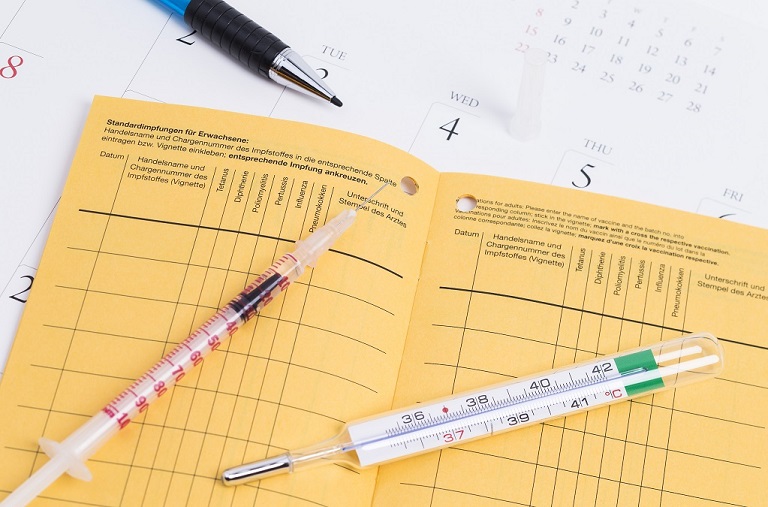Travelers' Health Most Frequently Asked Questions
On This Page
CDC Travelers’ Health Branch provides health advice to international travelers, including advice about medications and vaccines. On this page, you’ll find some of our most frequently asked questions and responses.
Travel Vaccines and Medications
1. What vaccines or medicines should I get before traveling to my destination?
A: It depends on where you are going and what you will be doing. Use our destination tool to find the vaccines and medications you need for your next trip, and schedule an appointment with your doctor or a travel medicine specialist at least a month before traveling to get recommended or required vaccines and medicines.
2. If I am going on a cruise that will stop in several countries, which vaccines should I get for each country?

A: You should be up-to-date on routine vaccines, such as measles-mumps-rubella (MMR), tetanus, and flu. Depending on where you’re going and what activities you plan, other vaccines may be recommended. More cruise information.
3. What is the difference between routine, recommended, and required vaccines?
A: Routine vaccines are those that are recommended for everyone in the United States based on their age, health condition, or other risk factors. You may think of these as the childhood vaccines you got before starting school, but some are routinely recommended for adults, like the adult pertussis booster Tdap, and some every year (like the flu vaccine) or every 10 years (like the tetanus booster for adults).
A required vaccine is one that travelers must have in order to enter a country, based on that country’s regulations. Yellow fever, meningococcal, and polio vaccines may be required by certain countries.
Recommended vaccines are those that CDC recommends travelers get to protect their health, even if they aren't required for entry by the government of the country you are visiting. They protect travelers from illnesses that are usually travel-related. For example, a typhoid vaccine can prevent typhoid, a serious disease spread by contaminated food and water, which is not usually found in the United States. The vaccines recommended for a traveler depend on several things, including age, health, and itinerary.
Find out more about travel vaccines. Clinicians: Use our 2-page Quick Guide to Travel Vaccination Recommendations.
4. What are the prices of vaccines needed for travel outside the United States?
A: Prices vary by provider and insurance coverage. You should be able to get routine vaccines from your primary health care provider, health clinic, or health department. Travel clinics and yellow fever vaccine clinics should be able to give you any vaccines that your health care provider cannot.
5. How long do travel vaccines last (when do I need to get a booster dose)?
A: How long travel vaccines last depends on the vaccine. If you're traveling outside the United States, you should see a health care provider who is familiar with travel medicine at least a month before your trip. They can give you advice about any vaccines and vaccine boosters based on where you are going and your previous vaccinations. Be sure to bring your vaccine records to your appointment!
6. Which medications can I travel with?
A: When packing for trips abroad, don’t forget there may be special considerations for bringing your prescriptions and other medicines with you. Some medicines that are commonly prescribed or available over-the-counter in the United States can be illegal in other countries. Check with the embassy or consulate in the country you will be visiting to make sure your medicines are permitted in that country.
See your health care provider at least a month before you go to get any needed or extra medications, and pack medications in your carry-on in case your luggage is lost.
Yellow Fever Vaccine

7. Which countries require yellow fever vaccine for travel?
A: Some countries in South America and Africa require you to provide proof that you have been vaccinated against yellow fever by presenting an International Certificate of Vaccination or Prophylaxis when entering the country. However, there are other popular travel destinations where the threat of infection with yellow fever virus is very real, and there is no requirement for you to be vaccinated to enter the country.
If you only get the yellow fever vaccine before going to countries that require it, you could be putting your health at risk. Since yellow fever disease can be serious or even fatal, CDC recommends that individuals be vaccinated when traveling to any areas where there is a risk of acquiring infection with yellow fever virus. Use our destination tool to find out which vaccines the CDC recommends you have for anywhere you travel around the world and talk to a travel medicine provider for more details.
Yellow fever vaccine is only available at yellow fever vaccine clinic, so call ahead (well in advance of travel) and book your appointment.
Even if you get the yellow fever vaccine, you can still get other diseases from mosquito bites, like malaria, dengue, and Zika. The best ways to prevent mosquito-borne diseases are to use insect repellent while outdoors, wear long pants and long sleeves, and choose accommodations with air conditioning or mosquito nets. For travel to areas where malaria is a risk, taking medicine that can prevent malaria may also be advised.
8. How far in advance of my trip do I need to get the yellow fever vaccine?
A: For most people, it takes up to 10 days after the vaccine is given to be protected against the yellow fever virus. If your destination requires yellow fever vaccine, the proof of vaccination does not become valid until 10 days after the vaccine is given.
9. Where can I get a yellow fever vaccine in my area?
A: The nearest yellow fever vaccination clinic may be far away from where you live, and appointments may be limited. Be sure to contact the clinic ahead of time.
10. Who should not get the yellow fever vaccine?
A: Some people should not get the yellow fever vaccine: infants younger than 6 months, or people with a history of a bad reaction to the vaccine should not receive yellow fever vaccine. If you have a thymus disorder associated with abnormal immune cell function (such as a thymoma or myasthenia gravis) you should not receive yellow fever vaccine. If cancer, or the drugs or radiation used to treat cancer, has weakened your immune system, you should not receive yellow fever vaccine. If you received an organ transplant and take medicines to prevent rejection of that transplant, you should not receive yellow fever vaccine. Other conditions and medicines can also affect your immune system and could be a reason not to receive yellow fever vaccine. Check with your doctor to find out more.
If you are older than 60 years old, pregnant, or breastfeeding, talk to your doctor before getting a yellow fever vaccine. There are potential risks to your health from the vaccine. If you are infected with HIV, talk to your doctor; you may still be able to get yellow fever vaccine, depending on your CD4 cell count and immune function. Infants 6–8 months old can receive yellow fever vaccine, although it is less risky to postpone travel to areas with yellow fever until the baby is 9 months of age or older. After the age of 9 months, the health risks from the vaccine are considerably lower.
Embassies
11. How can I contact the local US embassy?

A: 1. Enroll with the nearest US embassy or consulate through the Smart Traveler Enrollment Program (STEP). It’s a FREE service that allows US citizens traveling or living abroad to receive the latest security updates for their location.
2. If you need to contact a US embassy or consulate, call 1-888-407-4747 (from the US or Canada) OR 00-1-202-501-4444 (from other countries).
Travel healthy, from CDC’s Travelers’ Health!